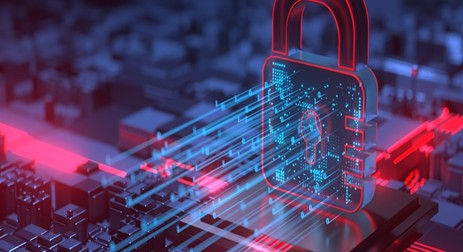The Dark Web Economy: How Cybercriminals Monetize Stolen Data
- Jukta MAJUMDAR

- 6 days ago
- 3 min read
JUKTA MAJUMDAR | DATE March 24, 2025
Introduction

The dark web, a hidden segment of the internet accessible only through specialized software, has become a thriving marketplace for cybercriminals. Stolen data, a valuable commodity in this illicit economy, fuels a range of criminal activities. This article explores the mechanisms by which cybercriminals monetize stolen data on the dark web, shedding light on the intricate and often alarming nature of this underground market.
The Value of Stolen Data

Stolen data encompasses a wide array of information, including personal identification details, financial credentials, medical records, and corporate secrets. This data holds significant value for cybercriminals, who can exploit it for various malicious purposes. The value of data varies depending on its type, quantity, and the potential for exploitation. For instance, complete identity packages, including social security numbers and birth dates, command higher prices than simple email addresses.
Monetization Methods
Cybercriminals employ diverse methods to monetize stolen data on the dark web. These methods include:
Direct Sales
Stolen data is often sold directly to other criminals through dark web marketplaces and forums. Buyers use this data for identity theft, fraud, and other illicit activities.
Fraudulent Activities
Cybercriminals use stolen financial data to commit credit card fraud, bank account takeovers, and other financial crimes. They may also use stolen identities to apply for loans or open new accounts.
Extortion and Ransomware
Stolen data can be used for extortion, where criminals threaten to release sensitive information unless a ransom is paid. Ransomware attacks, which encrypt data and demand payment for its release, often involve the exfiltration and sale of sensitive information.
Credential Stuffing and Account Takeovers
Stolen login credentials are used to gain unauthorized access to online accounts, including social media, email, and e-commerce platforms. These accounts can then be used for fraud, spamming, or further data theft.
Corporate Espionage
Stolen corporate data, such as trade secrets and intellectual property, is sold to competitors or used to gain an unfair advantage. This can lead to significant financial losses for targeted companies.
The Dark Web Marketplace

The dark web marketplace operates similarly to legitimate online marketplaces, with vendors, buyers, and rating systems. However, transactions are conducted using cryptocurrencies like Bitcoin to maintain anonymity. This anonymity makes it difficult for law enforcement to track and apprehend cybercriminals.
Challenges and Countermeasures
Combating the dark web economy and the monetization of stolen data presents significant challenges. Law enforcement agencies are working to disrupt these markets, but the anonymity and decentralized nature of the dark web make it difficult to track and apprehend criminals. Organizations and individuals must take proactive measures to protect their data, including implementing strong security measures, educating employees about cybersecurity best practices, and monitoring for signs of data breaches.
Conclusion
The dark web economy poses a serious threat to individuals and organizations alike. The monetization of stolen data fuels a range of criminal activities, leading to financial losses, identity theft, and other harmful consequences. Understanding the mechanisms by which cybercriminals operate is crucial for developing effective countermeasures and protecting sensitive information in the digital age.
Sources
Digital Wealth Guard. (2025). Dark web economics: How cybercriminals monetize your financial data. Digital Wealth Guard. Retrieved from https://www.digitalwealthguard.com/cybersecurity/dark-web-economics-how-cybercriminals-monetize-your-financial-data
Cybernod. (2025). How cybercriminals sell stolen data on the dark web. Cybernod Blog. Retrieved from https://blog.cybernod.com/2025/02/how-cybercriminals-use-the-dark-web-to-sell-stolen-data/
Brandefense. (2024). Cybercrime monetization: How stolen data fuels the underground economy. Brandefense Blog. Retrieved from https://brandefense.io/blog/dark-web/cybercrime-monetization-how-stolen-data-fuels-the-underground-economy/
Image Citations
Amy. (2024, September 25). The Thriving Dark Web Economy is Bad News for Businesses | ID Agent. ID Agent. https://www.idagent.com/blog/the-thriving-dark-web-economy-is-bad-news-for-businesses/
Carpenter, S. (2021, July 8). 5 cybersecurity issues that the public sector faces and how to protect it. Open Access Government. https://www.openaccessgovernment.org/cybersecurity-technologies-public-sector-protect/115001/
Foley, T. (n.d.). Hype or Help? How to Protect Your Data with Dark Web Monitoring. https://www.thinkstack.co/blog/hype-or-help-how-to-protect-your-data-with-dark-web-monitoring





Comments